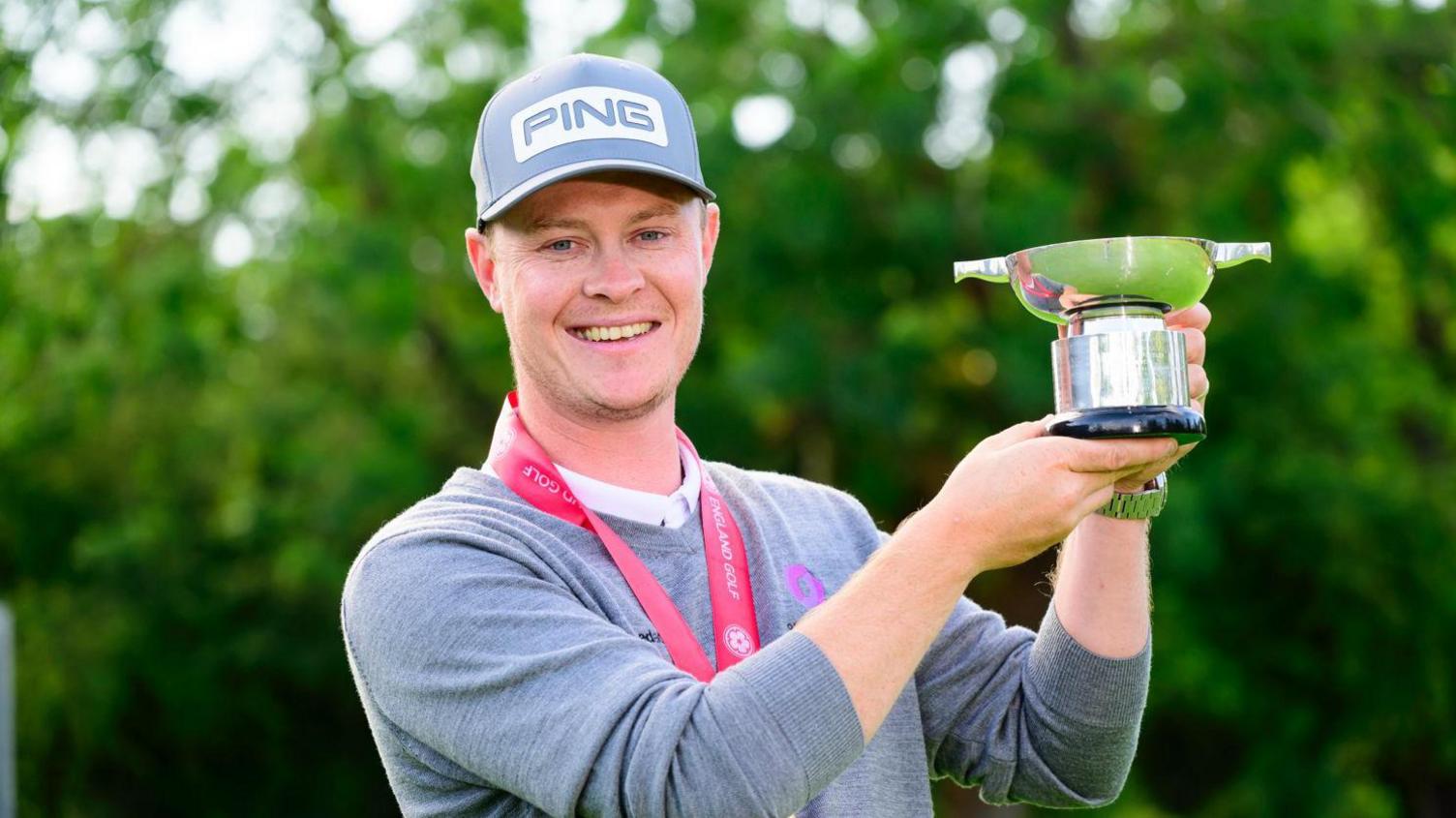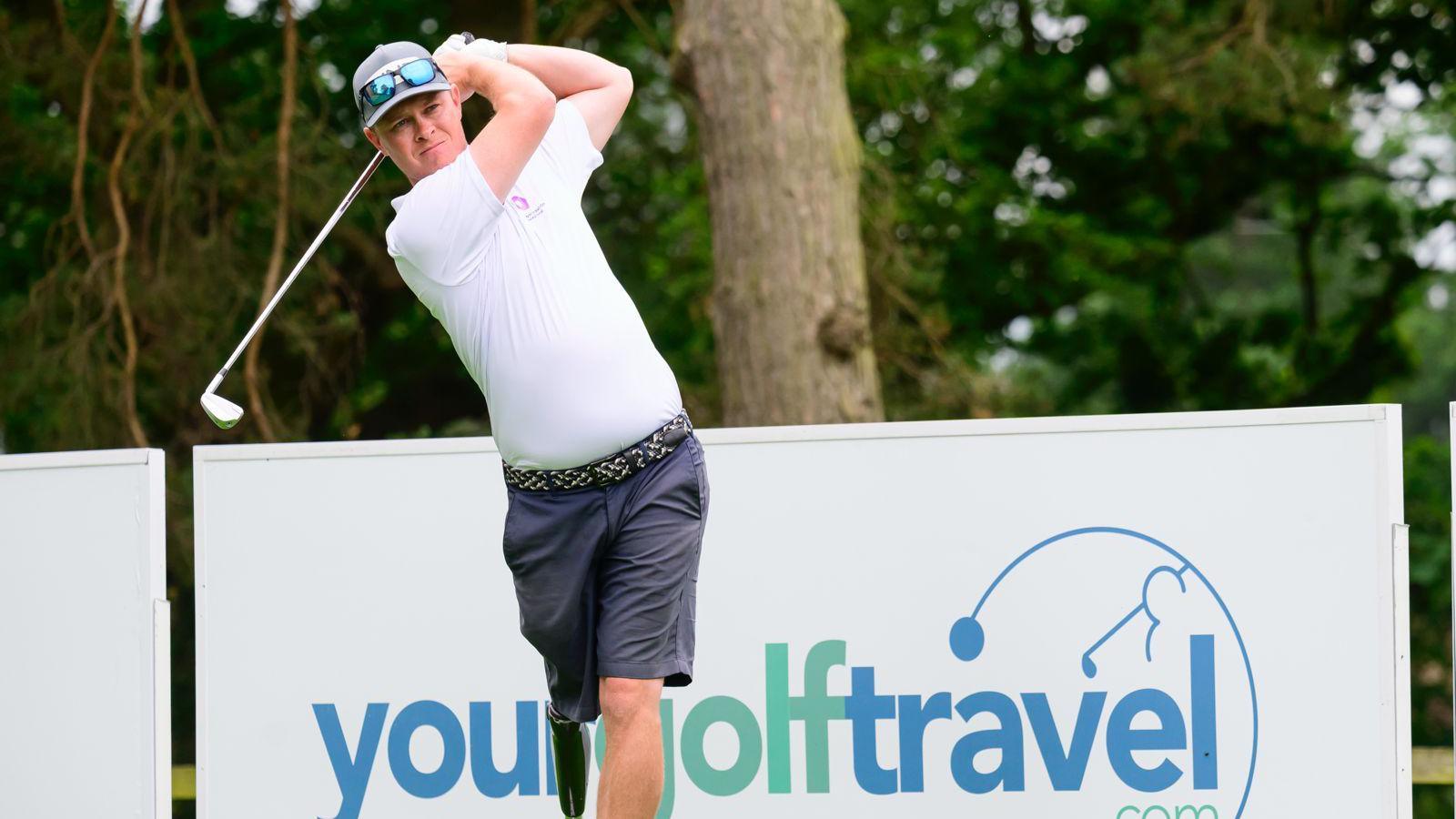Disability golf champion calls for Paralympic nod

Brad Smith has won successive English Open para-golf titles
- Published
Disability golf champion Brad Smith has called for the sport to be included in future Paralympic Games.
In June, Smith won the English Open for Golfers with a Disability for the second successive year at Ramside Hall in Durham.
"There's definitely enough players to make it into the Paralympics," he told BBC Radio Norfolk.
"One day, it should be in. When? No one knows. It's frustrating but there's nothing we can do about it."
Golf returned to the Olympics at the 2016 Rio Games after a 112-year absence. The sport has never been included in the Paralympics despite calls from players.
In 2021, the International Paralympic Committee said Para-golf did apply for Paris 2024 but "was not fully compliant with the set of requirements for inclusion".
Los Angeles will host the next Olympics and Paralympics in 2028 - but in 2023 a bid for Para-golf to be included was again rejected by the IPC.

Brad Smith had his right leg amputated at the age of 22
It's clear Smith would be a candidate to represent ParalympicsGB if and when the sport does gain Paralympic status.
The 27-year-old started playing golf as a teenager but had to have his right leg amputated at the age of 22 and said the transition to disabled golf was difficult.
"I lost my leg to a rare form of bone cancer and I had to learn to walk again," Smith said.
"I found out about disability golf and started playing - and it got bigger and bigger every year.
"It was a struggle. Getting back into golf with one leg, there was a lot of bad shots and a lot of trial and error."
Smith is a member at the Royal Cromer course in Norfolk and said winning back-to-back English Opens was a dream come true.
"To win the first time around was one of my goals, to win it again the next year was a very, very good feeling," he added.
Smith said his perspective on the sport has changed since losing his leg and that he is now more capable of controlling his emotions on the course.
"When I had two legs I was quite an angry golfer," he said.
"If I had a bad hole, I'd be angry for the next hole. Now I don't get anywhere near as angry as I used to. By the next shot it's completely forgotten."
England Golf runs more than 50 tournaments, external a year for disabled golfers and Smith says the sport is on the rise.
"The future is looking bright for disability golf - growing the game, getting kids into it and promoting it on a bigger scale," he said.